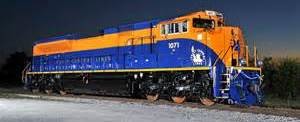The Fiery Locomotive
by Rabbi Mordechai Rhine
The Parsha in which the Torah is given is called “Yisro,” after Yisro, the father in law of Moshe who comes to the Jews in this week’s Parsha. Yisro sees Moshe judging the people singlehandedly and suggests that Moshe delegate authority to his students. Moshe listens and the court system is born.
Moshe judging the people singlehandedly and suggests that Moshe delegate authority to his students. Moshe listens and the court system is born.
There is however a challenging topic regarding Yisro’s story. Rashi points out that although Yisro is recorded in the Torah as coming before the Torah was given, in reality he came after the Torah was given. Rashi invokes the rule, “Ein Mukdam U’Miuchar Bitorah,” Torah is not a history book, and occasionally things are recorded out of sequence for a specific reason. Rashi’s view is that Yisro certainly came after the Torah was given. That was why he found Moshe so busy judging the people and helping them apply the newly received Law. For what reason does the Torah record the coming of Yisro before the Torah was given if it really happened after?
A second challenging observation is that Yisro’s suggestion to delegate authority to the students seems so obvious that one wonders why it had to wait for Yisro, and why Yisro is given credit for this “breakthrough” suggestion?
The commentaries explain that although all knew intellectually that Moshe would not be here forever- that he would eventually delegate authority to his disciples, and that there would be a mesorah/ tradition from one generation to the next- It was Yisro who was the first to experience it. Yisro was the first person not to be at the great revelation, but able to experience it through the tradition of those who were there. Yisro is the first person who through his personal experience can say that the tradition will work, that a student will be able to successfully take the place of his teacher in the chain of mesorah.
This explains why the Torah records the coming of Yisro before the giving of the Torah even though he actually came afterwards. Before the Torah tells us about Torah it is important for us to gain perspective about what amazing gift and power is about to be released to mankind. The Torah has us flash forward for a moment to an event which occurred after the Torah was given, in which Yisro advises Moshe that he can delegate to the next generation, and the tradition will be successful.
One of the most important aspects of successful education and mentorship is to imbue and empower the disciple such that the disciple becomes a self-starter, able to carry on the tradition to the next generation. Rabbi Mendel Kaplan once observed that some students sit in class with confidence, listening to a Talmud class, confident that the Rebbe indeed knows the Talmudic passage. He would laugh and say, “It is not enough that the Rebbe knows the passage. It is you who needs to know it.”
I am reminded of a great Chasidic Master who was brought to the big town for the first time to see a locomotive. After studying the train system for awhile, the students asked their Rebbe what lesson can be learned from the locomotive. The Rebbe answered, “The lesson of the locomotive is that one fiery engine can carry with it many cold cars. But this lesson doesn’t help me in my relationship with my followers… because I am not in the business of carrying cold cars. I am in the business of creating fiery locomotives.”
The first person to experience the tradition without being there was Yisro. Yet he sensed with clarity that Torah has the power to make the disciple into a fiery locomotive. He sensed from personal experience that the tradition would endure. And so, the Torah goes to lengths to put the coming of Yisro out of order, so that we should appreciate before we discuss the giving of the Torah, that the giving of the Torah is a legacy that would last forever.
© 2016 by TEACH613™


0 Comments